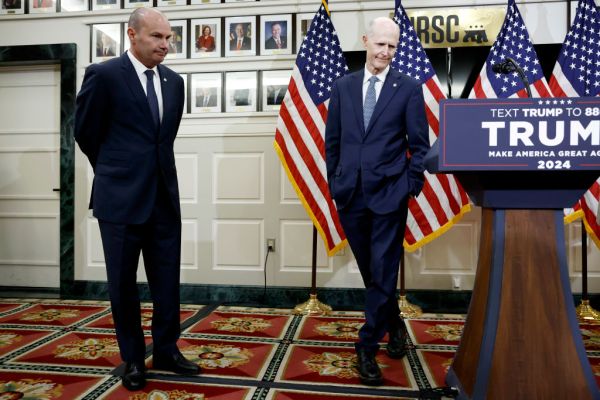The United States hit its debt ceiling Thursday, but lawmakers still have a few months to avoid a default thanks to the Treasury Department’s stopgap measures. The problem: Members of Congress still aren’t sure how they’ll get to a resolution.
Republican lawmakers want to rein in future government spending as part of a deal to raise the current $31.4 trillion borrowing limit, but they don’t agree on what they should demand in negotiations with Democrats. Some want to go all-out: The stakes are high, but the debt ceiling deadline represents one of the GOP House’s few opportunities to win concessions from the Democratic Senate and Biden administration. Others recognize there will have to be some compromise in a divided government.
The coming showdown elevates the risk of a historic default, which would likely upend the global economy. (A 2011 standoff over the debt limit prompted S&P to downgrade the U.S.’s credit rating.) It may also threaten newly elected House Speaker Kevin McCarthy’s tenure.
Republicans like Rep. Andy Biggs say they will oppose any kind of debt ceiling increase or suspension. Some want to see dollar-for-dollar cuts matching the amount by which the debt ceiling is raised. Others, such as Rep. Chip Roy of Texas, have said they want a balanced budget within a decade. As my colleagues at The Morning Dispatch noted earlier this week, that would take roughly $11 trillion in savings to pull off. That’s a huge cut Democrats won’t be willing to sign onto—leading other Republicans to cast doubt on the prospect.
Nebraska Rep. Don Bacon cautioned in an interview with The Dispatch Thursday that Republicans shouldn’t “promise the moon here, because we’re not going to be able to deliver that.”
Bacon called for forming a bipartisan committee to examine mandatory spending programs like Social Security—which account for nearly two-thirds of the United States’ current spending—and come up with ways to keep them solvent. West Virginia Democratic Sen. Joe Manchin has pitched something similar as a way to end the debt ceiling dispute, but Republicans are unlikely to accept that alone as reason enough to raise the limit. Bacon said he wants to see some discretionary spending cuts as well.
“The number one issue in our campaign was inflation that was triggered partially by reckless spending,” Bacon said. “I know that’s not the only reason for inflation, but if we do nothing on that side, I think it will be a failure for our constituents. It will be seen that way.”
He urged the White House to work with Republicans. Administration officials have said they support a clean debt ceiling increase and won’t negotiate with House Republicans.
“The president needs to be at the table and negotiate in good faith,” Bacon said.
Other Republicans from competitive districts—the members most likely to work with Democrats on the debt ceiling—have made similar comments. They have also pushed back on the idea of sidestepping Republican leaders and ending the standoff through an unwieldy process called a discharge petition. The tool has only rarely been successful, and it would take months for a bill to reach the House floor. A bill first has to be introduced, then sit in committee without any action for 30 legislative days. If members receive 218 signatures to bring the bill forward, they can—after waiting another seven legislative days.
Those aren’t the only hurdles to such a strategy. The group would also have to come up with a bill the Democratic Senate would agree to—always a challenge.
Centrist Republicans for now are giving GOP leaders leeway, but this showdown may put McCarthy’s ability to hold onto the speakership to the test. When he worked to win enough support to become speaker earlier this month, he agreed to reinstate a one-person threshold to trigger a motion to vacate the chair, a tool to force a vote on ousting the speaker.
With such a slim majority, if all members are present and voting, McCarthy can afford to lose only four members of his conference or else lose the speakership. If any four Republicans are dissatisfied with his debt ceiling negotiations later this year—“He didn’t fight hard enough!”—the GOP conference could be thrown into chaos.
With some far-right members saying they won’t support any kind of debt ceiling increase, McCarthy may also have to win over enough Democratic votes to offset that opposition. But Democrats are unlikely to support most of the budget cuts Republicans are pitching.
It’s a delicate balancing act. That’s why Sen. John Cornyn, a Texas Republican, pointed out that McCarthy’s unruly, weeklong effort to become speaker was just the start: “As hard as this is, this may be the easiest thing he does all year, because once he’s elected speaker, then he’s going to have to keep the group together.”









Please note that we at The Dispatch hold ourselves, our work, and our commenters to a higher standard than other places on the internet. We welcome comments that foster genuine debate or discussion—including comments critical of us or our work—but responses that include ad hominem attacks on fellow Dispatch members or are intended to stoke fear and anger may be moderated.